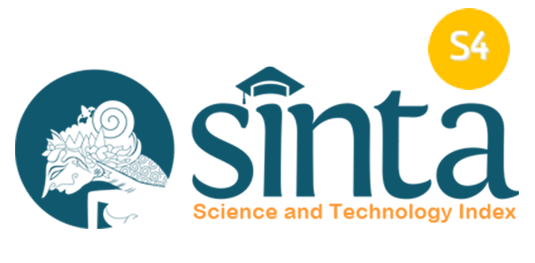Future teachers’ mathematics cognitive failures and their learning styles
Abstract
This study investigated the disparities in the mathematics cognitive failures of future mathematics teachers based on learning style inclination. As a descriptive survey study, the sample included 480 future mathematics teachers from four universities in south-west Nigeria. Two research questions were involved and two instruments were used for the collection of quantitative data for the study: Learning Style Inventory (LSI, Cronbach alpha coefficient=0.74) and the Mathematics Cognitive Failures Questionnaire (MCFQ, Cronbach alpha coefficient=0.89). The collected data were analyzed using one-way Analysis of Variance (ANOVA), frequency, and percentage. Results showed that future mathematics teachers in varying degrees preferred the four learning styles of convergers, divergers, accommodators, and assimilators. In addition, there was a statistically significant influence of learning style on future teachers’ mathematics cognitive failures. Thus, there were meaningful disparities in mathematics cognitive failures between accommodators and the other three types of future teachers: divergers, convergers, and assimilators. The disparity was in support of the accommodators. Succinctly, the accommodators pooled the greatest mathematics cognitive failures while the divergers recorded the least mathematics cognitive failures. In line with these study findings, it is advised that strategies that could reduce future teachers’ mathematics cognitive failures and close the gaps created by learning styles should be enacted to promote their success in mathematics learning.
Keywords
Full Text:
PDFReferences
Akinyode, B. F., & Khan, T. H. (2016). Students’ learning style among planning students in Nigeria using Kolb’s learning style inventory. Indian Journal of Science and Technology, 9(47), 1-13.
Allahyari, T., Saraji, G. N., Adl, J., Hosseini, M., Iravani, M., Younesian, M., & Kass, S. J. (2008). Cognitive failures, driving errors and driving accidents. International Journal of Occupational Safety and Ergonomics, 14(2), 149–158.
Ata, R., & Cevik, M. (2019). Exploring relationships between Kolb’s learning styles and mobile learning readiness of pre-service teachers: A mixed study. Education and Information Technologies, 24(2), 1351-1377.
Awofala, A. O. A. & Odogwu, H. N. (2017). Assessing preservice teachers’ mathematics cognitive failures as related to mathematics anxiety and performance in undergraduate calculus. Acta Didactica Napocensia, 10(2), 81 – 97.
Baidoo, J. (2019). Dealing with grade 10 learners’ misconceptions and errors when simplifying algebraic fractions. Journal of Emerging Trends in Educational Research and Policy Studies, 10(1), 47-55.
Baker, R., Dixon, N., & Kolb, D. A. (1985). Personal learning guide. Boston: McBer and Company.
Beilock, S. L., & DeCaro, M. S. (2007). From poor performance to success under stress: Working memory, strategy selection, and mathematical problem solving under pressure. Journal of Experimental Psychology: Learning, Memory, and Cognition, 33(6), 983.
Broadbent, D. E., Cooper, P. F., FitzGerald, P., & Parkes, K. R. (1982). The cognitive failures questionnaire (CFQ) and its correlates. British Journal of Clinical Psychology, 21, 1-16.
Hawk, T. F., & Shah, A. J. (2007). Using learning style instruments to enhance student learning. Decision Sciences Journal of Innovative Education, 5(1), 1-19.
Knisley, J. (2001). A four-stage model of mathematical learning. The Mathematics Educator, 12(1), 1-10.
Kolb, D. A. (1984). Experiential learning: Experience as the source of learning and development. New Jersey: Prentice Hall, Inc.
Kolb, D. A. (1985). Learning style inventory: Self-scoring inventory and interpretation booklet. Boston: McBer and Company.
Kolb, A. Y. & Kolb, D. A. (2005a). The Kolb learning style inventory-Version 3.1. Technical Specifications. Kaunakakai, Hawaii: Experience Based Learning Systems, Inc. HaysGroup
Kolb, A. Y., & Kolb, D. A. (2005b). Learning Styles and learning spaces: Enhancing experiential learning in higher education. The Academy of Management Learning and Education, 4, 193-212.
Koob, J. J. & Funk, J. (2002). Kolb's learning style inventory: Issues of reliability and validity. Research on Social Work Practice, 12(2), 293-308. https://doi.org/10.1177/104973150201200206.
Kyaruzi, F., Strijbos, J. W., Ufer, S., & Brown, G. T. (2019). Students’ formative assessment perceptions, feedback use and mathematics performance in secondary schools in Tanzania. Assessment in Education: Principles, Policy & Practice, 26(3), 278-302.
Larrain, M., & Kaiser, G. (2019). Analysis of students’ mathematical errors as a means to promote future primary school teachers’ diagnostic competence. Uni-pluriversidad, 19(2), 17-39.
Legutko, M. (2008). An analysis of students' mathematical errors in the teaching-research process. In B.Czarnocha (Ed.), Handbook of Mathematics Teaching Research: Teaching Experiment - A Tool for teacher-Researchers (pp. 141-152). Poland: University of Rzeszow: Rzeszow.
Moru, E. K., Qhobela, M., Poka, W., & Nchejane, J. (2014). Teacher knowledge of error analysis in differential calculus. Pythagoras, 35(2), 1-10. http://dx.doi.org/10.4102/pythagoras.v35i2.263.
Olivier, A. (1989). Handling pupils’ misconceptions. Pythagoras, 21, 10–19.
Orhun, N. (2007). An investigation into the mathematics achievement and attitude towards mathematics with respect to learning style according to gender. International Journal of Mathematical Education in Science and Technology, 38(3), 321-333.
Orhun, N. (2012). The relationship between learning styles and achievement in calculus course for engineering students. Procedia - Social and Behavioral Sciences, 47, 638 – 642.
Orhun, N. (2013). The effects of learning styles on high school students’ achievement on a mathematics course. Educational Research and Reviews, 8(14), 1158-1165.
Orton, A. (1983). Students’ understanding of differentiation. Educational Studies in Mathematics, 14, 235–250. http://dx.doi.org/10.1007/BF00410540
Pankow, L., Kaiser, G., Busse, A., König, J., Blömeke, S., Hoth, J., & Döhrmann, M. (2016). Early career teachers’ ability to focus on typical students errors in relation to the complexity of a mathematical topic. ZDM, 48(1-2), 55-67.
Parker, D., Reason, J. T., Manstead, A. S. R, & Stradling, S. G. (1995). Driving errors, driving violations and accident involvement. Ergonomics, 38, 1036–1048.
Peker, M. & Mirasyedioglu, S. (2008). Pre-service elementary school teachers’ learning styles and attitudes towards mathematics. Eurasian Journal of Mathematics, Science & Technology Education, 4(1), 21-26.
Peker, M. (2005). Ilkögretim matematik ögretmenligini kazanan ögrencilerin ögrenme stilleri ve matematik basarisi arasindaki iliski. Egitim Arastirmalari Dergisi, 21, 200-210.
Peker, M. (2009). Pre-service teachers’ teaching anxiety about mathematics and their learning styles. Eurasia Journal of Mathematics, Science & Technology Education, 5(4), 335-345.
Rakoczy, K., Pinger, P., Hochweber, J., Klieme, E., Schütze, B., & Besser, M. (2019). Formative assessment in mathematics: Mediated by feedback's perceived usefulness and students' self-efficacy. Learning and Instruction, 60, 154-165.
Rofiki, I., Nusantara, T., Subanji, & Chandra, T. D. (2017). Exploring local plausible reasoning: The case of inequality tasks. Journal of Physics: Conference Series, 943(1), 012002. https://doi.org/10.1088/1742-6596/943/1/012002
Rofiki, I., & Santia, I. (2018). Describing the phenomena of students’ representation in solving ill-posed and well-posed problems. International Journal on Teaching and Learning Mathematics, 1(1), 39–50. https://doi.org/https://doi.org/10.18860/ijtlm.v1i1.5713
Rong, H., & Choi, I. (2019). Integrating failure in case-based learning: a conceptual framework for failure classification and its instructional implications. Educational Technology Research and Development, 67(3), 617-637.
Saralar, İ., Ainsworth, S., & Wake, G. (2018). Middle school students’ errors in two-dimensional representations of three-dimensional shapes. Proceedings of the British Society for Research into Learning Mathematics, 38(1), 1-6.
Sisman, G. T., & Aksu, M. (2016). A study on sixth grade students’ misconceptions and errors in spatial measurement: Length, area, and volume. International Journal of Science and Mathematics Education, 14(7), 1293-1319.
DOI: https://doi.org/10.18860/ijtlm.v3i1.9204
Refbacks
- There are currently no refbacks.
Copyright (c) 2020 International Journal on Teaching and Learning Mathematics

This work is licensed under a Creative Commons Attribution-NonCommercial-ShareAlike 4.0 International License.
Indexed by :
.png)
.jpg)
.png)

.jpg)


